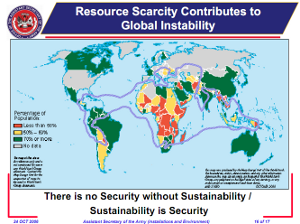The Truth About the Truth Commission
by Anthea Jeffery
Foreword by John Kane-Berman,
SA Inst. of Race Relations (SAIRR)
Johannesburg, 1999
by Anthea Jeffery
Foreword by John Kane-Berman,
SA Inst. of Race Relations (SAIRR)
Johannesburg, 1999
III. Introduction
The Truth and Reconciliation Commission (TRC) was established in December 1995, under the Promotion of National Unity and Reconciliation Act of 1995. Its purpose was to:
- provide 'as complete a picture as possible' of the gross violations of human rights committed on all sides in the conflicts of the past, in the period from March 1960 to May 1994 (the mandate period);
- identify the perpetrators of such violations and determine their accountability, political or otherwise;
- restore the human and civil dignity of victims by giving them the opportunity to relate their own accounts of the violations they had suffered;
- grant amnesty from both civil and criminal liability for politically motivated acts committed in the mandate period and proportionate to the political objectives being pursued;
- make recommendations regarding reparations for victims, as well as the measures needed to prevent a recurrence of human rights violations; and
- compile a comprehensive report of its activities and findings.
Gross violations of human rights were defined as 'the killing, abduction, torture, or severe ill-treatment' of any person, 'emanating from the conflicts of the past', and committed during the mandate period. Severe ill-treatment, the most amorphous category of violation, was interpreted by the commission as connoting acts 'similar in degree' to killing, torture or abduction, and involving 'the deliberate and direct infliction of severe mental or physical suffering'. In practice, this was taken to include burnings, beatings, shootings, stabbings, stonings, sexual abuse, and attempted executions by the 'necklace' method (in which a tyre was hung around the neck of the victim, doused with petrol, and then set alight).
The 17 members of the commission were appointed by the president, Mr Nelson Mandela, at the end of November 1995. A former Anglican archbishop of Cape Town, the Most Reverend Desmond Tutu, was appointed chairman of the commission while Dr Alex Boraine was appointed his deputy. At its first meeting (held on 16th December 1995) the commission chose Cape Town as its headquarters. It also established its three main committees (the Committee on Human Rights Violations, the Committee on Amnesty, and the Committee on Reparation and Rehabilitation), as well as an Investigating Unit. Subsequently it established, among other things, a Research Department and four regional offices (based in Cape Town, Durban, East London, and Johannesburg).
The TRC was initially given an 18-month period, until June 1997, to complete its work. This period was first extended to mid December 1997 and thereafter to 30th June 1998, while 31st July 1998 was the deadline for completion of the report. In early 1998, however, it became apparent that the TRC would not be able to resolve all outstanding amnesty applications within this period. Its founding legislation was accordingly amended to cater for this difficulty. In terms of these amendments:
- consideration of amnesty applications was to continue for an indefinite period;
- the rest of the TRC's work was to be concluded by 31st July 1998;
- an initial report was to be submitted to the president by 30th October 1998;
- the president was to reconvene the commission once all amnesty applications had been decided; and
- the TRC was then to 'complete its final report' for publication to the nation.
[I] Foreword [II] Overview [III] Introduction [IV] Publication Of The Current TRC Report [V] The Need For Factual Evidence [VI] The Need For Comprehensive Findings [VII] The Need For Violations To Be Contextualised [VIII] The Need To Accord With Established Legal Principles [IX] Findings Based On A 'Balance Of Probabilities' [X] Appendix
» » » » [Truth About Truth Commission (PDF)]







No comments:
Post a Comment